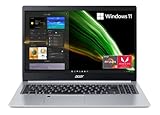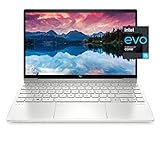You don’t have to settle for this kind of experience. Some manufacturers release laptops that come with Linux pre-installed. These manufacturers officially support Linux on their hardware, so you know that everything will work properly and that the laptop will keep working with future software updates.
Sure, it’s now much easier to run Linux applications on Windows 10 and Windows 11 thanks to the Windows Subsystem for Linux—and that’s a great solution for many people—but it’s not the real thing.
Chromebooks are also well worth looking into, especially since you can install Linux on a Chromebook or use certain Linux apps on Chrome OS. The main downside is that Chromebooks have become rather more expensive than they used to be, but without any substantial improvement in their specifications.
Whether you’re a developer looking for a Linux laptop for programming, a big believer in open-source software and privacy, or just a Linux enthusiast who prefers the operating system to Windows and macOS, we’ve got some options for you. You can even get powerful gaming laptops that come with Linux now—after all, Linux is good enough for Valve’s Steam Deck.
Ready to step into the world of Linux? These are the laptops to do it with.
RELATED: How to Buy a Laptop for Linux
Best Linux Laptop Overall: Dell XPS 13 Plus Developer Edition
The XPS 13 Plus Developer Edition has impressive specifications, but it’s also Dell’s choice of modern styling that makes it appealing compared to some of the more staid competition
✓ Looks fantastic✓ Great core specs and screen options✓ Thunderbolt 4 makes it perfect for docked use.
✗ Highest processor and RAM options doesn’t come with Linux pre-loaded
The Linux version of this laptop is only available with the Intel i5-1240P or i5-1260P on Dell’s website. The Linux models are available in either eight or 16-gigabyte configurations, and storage ranges from 512GB to 2TB of SSD space.
Screen options are also excellent, including a touch-enabled 1920×1200 13.4-inch screen as the most balanced option. If you want to blow your budget, then the 3.5K OLED or 4K+ LCD options are worth a look. Although those resolutions aren’t particularly useful at such a small screen size, things should still be noticeably crisper than the base FHD+ option.
The inclusion of two Thunderbolt 4 ports makes it easy to use this laptop with a docked workstation setup, and thanks to its powerful CPU, it’s also an excellent candidate for use with an external GPU (a graphics card that connects to a computer using a Thunderbolt connection).
The XPS 13 Plus offers heaps of processing power to compile complex code, while still having enough in reserve so you can browse the web while you wait. Thanks to the latest Intel efficiency core technology, you won’t have to run from one electrical outlet to the next.
Overall this truly is a dream machine for developers in a Linux environment in particular. Even if you aren’t a developer, there are few such well-rounded and sleek systems that come with full Linux support from the factory.
Best Budget Linux Laptop: Star Labs StarLite 11
There are laptops that work with Linux, and then there are laptops that only exist because of Linux. The StarLite 11-inch laptop from Star Labs is the latter, offering something entirely different from just about anything else on the market.
✓ A lot of laptop for the money✓ Open warranty✓ Open Source BIOS option✓ Good battery life✓ Wide selection of Linux distros to choose from
✗ Very modest specifications✗ May be too small for many users
The specifications are modest, sporting a N5030 Pentium Silver, 8GB of RAM, and a 240GB SSD in the lowest tier option. While you can’t opt for a better CPU or more RAM, you can increase the SSD size to 960GB if needed.
When you order a StarLite, you can have it pre-loaded with most of the Linux distributions worth having, not just the mainstream darling Ubuntu. At the time of writing, there are 16 flavors of Linux listed for the StarLite 11, and you can even opt out of an operating system entirely.
The choice of a proprietary BIOS from American Megatrends or an Open Source Coreboot BIOS is even more intriguing. The final pillar of StarLab’s commitment to openness is the inclusion of an “open” warranty. StarLite says the 1-year limited warranty allows you to “take your computer apart, replace parts, install an upgrade, and use any operating system and even your firmware, all without voiding the warranty.”
While the specs are undoubtedly modest, many Linux distros aren’t power hogs and will run fine on such hardware. If you’re looking for an open-source and budget-friendly laptop that can be used for most daily computer tasks, the StarLite is a very tempting option.
Best Premium Linux Laptop: ThinkPad X1 Carbon Gen 10 With Linux
When reviewing the Thinkpad X1 Carbon Gen 10, we were impressed by its premium build quality and specifications. While our review was of the Windows version, even when it comes to Linux, there’s nothing quite like the X1 Carbon in the ultrabook category.
✓ Excellent materials and build quality✓ Excellent battery life for an x86 laptop✓ Plenty of power for work purposes
✗ The screen is non-touch and relatively low-resolution✗ Speakers are average✗ ThinkPad styling isn’t for everyone
The X1 is available with Linux pre-installed, configured with a 12th-generation Intel i5-1240P, 8GB of LPDDR5, 256GB of SSD storage, and a 14-inch 1920×1200 PIS display.
The screen, in particular, has an impressive 400 nits of brightness and covers 100% of the sRGB color space. This makes it appropriate for a wide range of content creation work. It is, however, a little disappointing that the resolution isn’t higher or touch-enabled.
Battery life in mixed use comes in at over eight hours, but with more spirited use you may need to head for the charger after around 6 hours. The webcam is 1080p (higher than you get for many laptops), and thanks to the premium materials and build, typing and working with the Carbon on the go is confidence-inspiring. The speakers are adequate but don’t quite match the best laptop speakers you’ll find in many ultrabooks.
Of course, you always have the option of running Windows software on it through dual-booting, making this an extremely versatile machine.
Best Open Source Linux Laptop: Purism Librem 14
If you want a powerful computer where everything is open source and you have more control over your own hardware, try the Purism Librem 14. Purism says these systems are “designed chip-by-chip, line-by-line, to respect your rights to privacy, security, and freedom.”
✓ Open source BIOS✓ Minimal closed-source firmware✓ Hardware kill switches and other privacy features
✗ More expensive than the alternatives✗ 10th gen Intel Core CPU instead of 11th gen
These systems come with an open-source coreboot BIOS firmware and no Intel Management Engine (ME) code running at a low level. To be as open-source as possible, Purism avoids using “binary blob” closed-source firmware on its hardware whenever it can, although some binary blobs are still present. The Librem 14 comes with PureOS, a security-focused Debian-based Linux distribution developed by Purism.
Beyond open source, Purism is designed to put you in control as a user. The laptop includes physical kill switches that disconnect the included camera, mic, Wi-Fi, and Bluetooth when you flip them. Hackers gaining access to your webcam and mic is a real fear, and a physical kill switch helps to protect you against it.
The Librem 14 also has a BIOS write protection switch on its motherboard, preventing potential malicious software from installing updates without physically changing a switch’s position. Features like PureBoot and the Librem Key help you ensure only trusted software boots on your computer and protect your laptop’s encrypted files with a physical security key.
All this aside, you’re getting a solid 14-inch laptop with an Intel Core i7 CPU. However, note that this is a 10th generation Intel Core CPU for compatibility with the open-source BIOS instead of an 11th generation Intel Core CPU—not a big deal in terms of performance. Still, for the price, it does sting not getting the latest hardware. You can customize the memory, storage, and other features during the purchase process. Finally, Purism promises 9 hours and 48 minutes of battery life in light use.
But, be warned that the Librem 14 is a more expensive laptop than many others on this list. It’s a premium product, and Purism clearly had to do a lot of extra work to provide these incredible and rare features.
If you’re looking for more laptops with open-source firmware, System76’s line also has open firmware.
Best Linux Laptop for Gaming: System76 Oryx Pro
For gamers or anyone else looking for powerful GPU hardware, you’ll want to look at the System76 Oryx Pro. This is a hybrid graphics laptop with switchable NVIDIA and Intel graphics, so your laptop can save battery life by automatically using Intel-integrated graphics when you don’t need the GPU horsepower.
✓ Hybrid NVIDIA+Intel graphics✓ 15-inch or 17-inch options✓ Customizable hardware✓ Open source BIOS
✗ Only 1080p screen resolution✗ Low TDP GPUs with a largely pointless 3080 Ti option
The Oryx Pro is available in 15-inch or 17-inch sizes, and you can choose between NVIDIA GeForce RTX 3070 Ti, or 3080 Ti graphics, up to 64 GB of RAM, and up to 4TB of storage. The screen has a 1080p resolution with a 144Hz refresh rate. There’s no option for a higher-resolution screen, although that is a nice speedy refresh rate befitting a gaming system. Unfortunately, both GPU options are the 80W Max-Q variants, so there’s little point in opting for the more expensive 3080 Ti GPU, given that both chips perform virtually identically under the same power limits.
System76 only makes Linux laptops, and all of System76’s laptops come with open-source firmware. The company offers a whole line of PCs, including prebuilt Linux desktops.
These laptops come with their own Ubuntu-based operating system, Pop! OS, but of course, you can install other Linux distributions. Pop!_OS offers its own desktop environment with auto-tiling windows and keyboard navigation shortcuts, but it also integrates with the hardware.
You can also choose which GPU your laptop uses or configure the OS to automatically use a specific GPU when you launch a specific application in a few clicks. Pop!_OS is encrypted by default, too.
You can install Steam or any other Linux gaming software on Pop!_OS, and System76 even has a guide to gaming on Pop!_OS that will walk you through setting up Steam, configuring the open-source Lutris software to run emulators and Windows games, and using the GameHub software to combine your game libraries from multiple storefronts in one place.




















